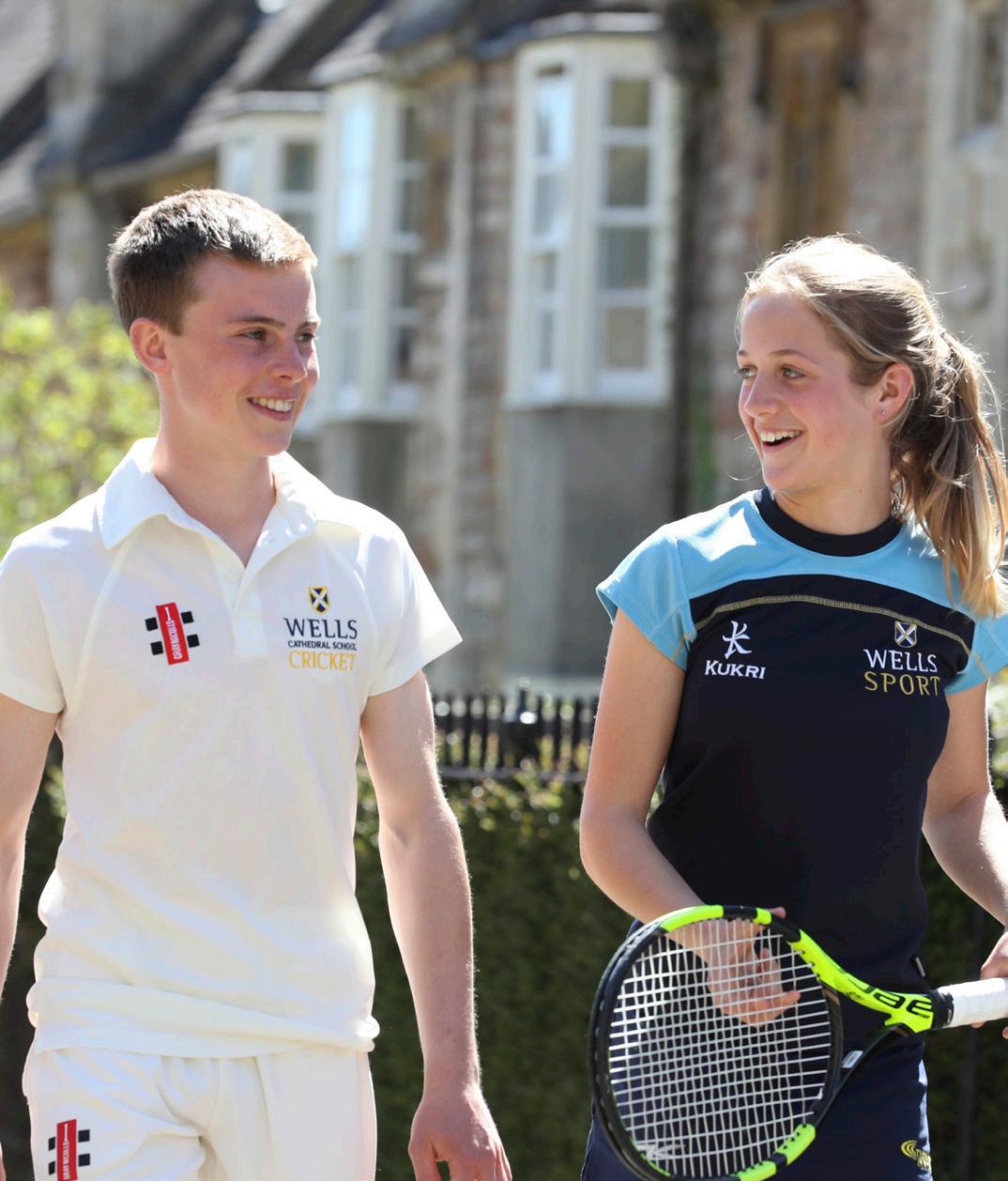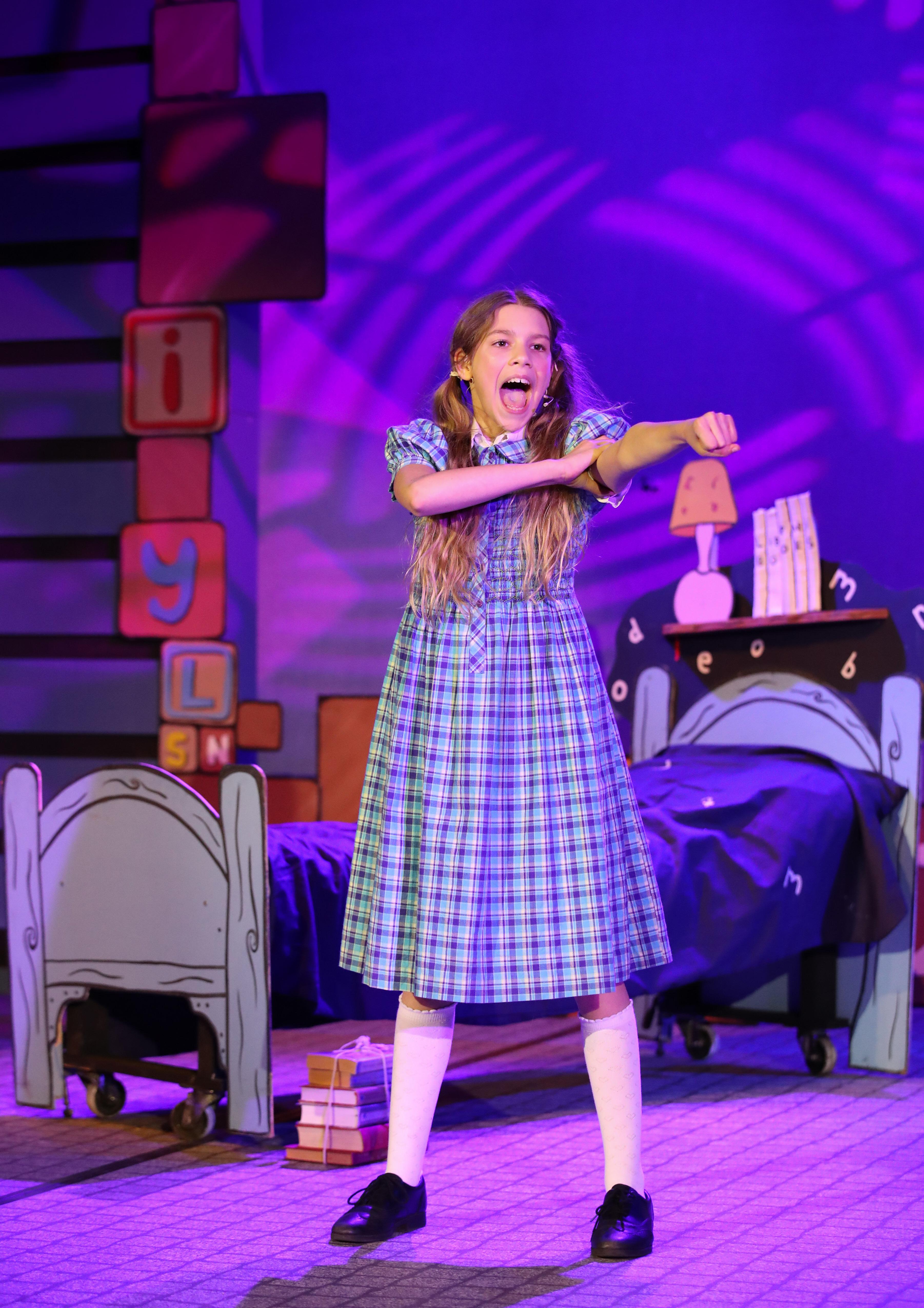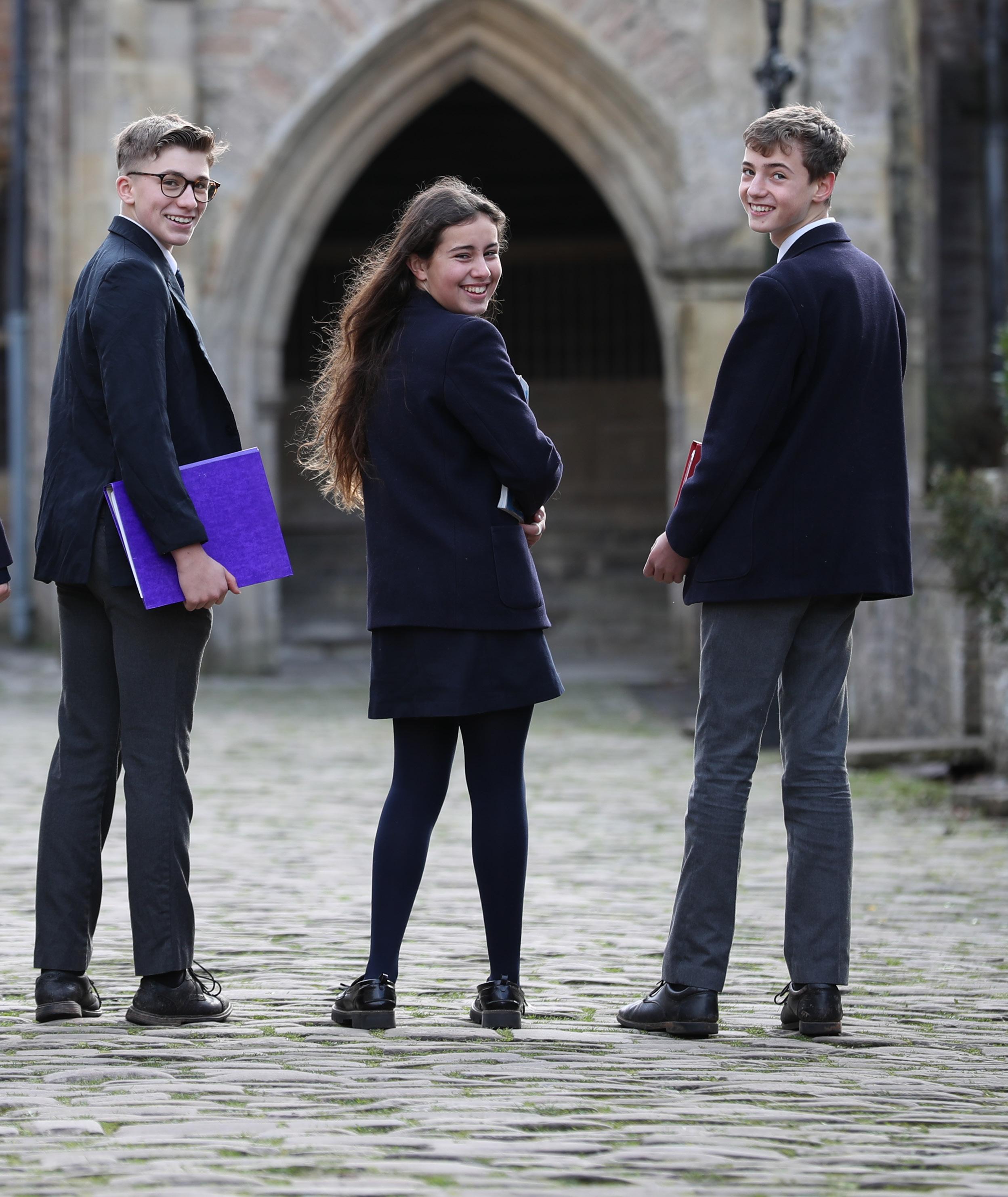Academic Handbook for Years 7-9

2024 - 2025


Please note that you can find the latest electronic version of this document, along with our other Handbooks and forms, on our website at: https://wells.cathedral.school/joining-us


2024 - 2025


Please note that you can find the latest electronic version of this document, along with our other Handbooks and forms, on our website at: https://wells.cathedral.school/joining-us
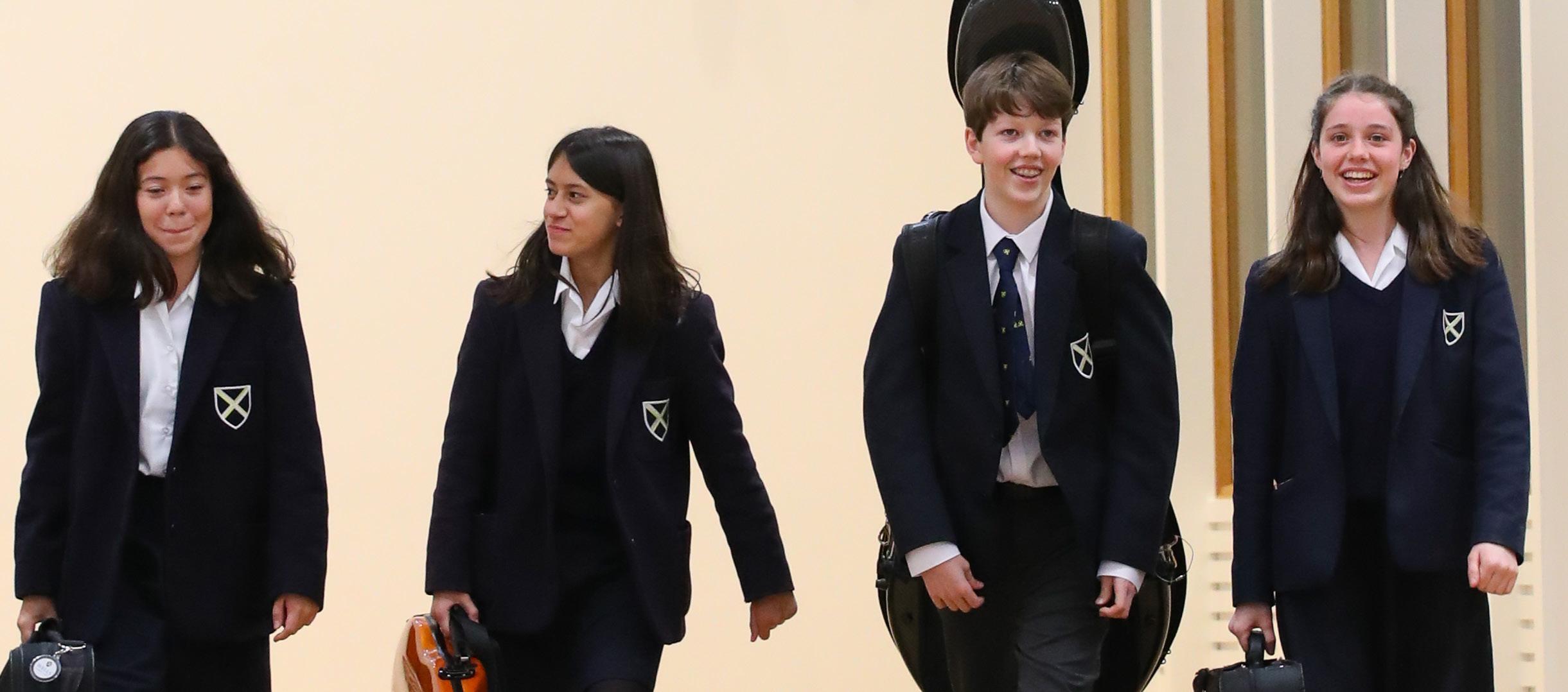
Entry to Senior School marks a very definite stage in a young person’s life: no longer a child and not yet an adult. It is a time of excitement and rapid personal development, yet also one of anxiety. There is anticipation of more responsibility in the teenage years and the beginning of a search for personal identity.
The transition to Senior School requires considerable input from parents, staff and pupils. Pupils will be faced with new more demanding tasks and continuing high expectations. They need to feel they belong to their new community and to discover fairly rapidly how everything runs and works. Those pupils who join us from Wells Cathedral Prep School will find that the Senior School is significantly different from the Prep School and yet there is a definite continuity between the two schools. Those coming from other schools will find that the routines, staff and school site will be new. Wherever you are joining Wells Senior School from, our staff are ready to give you support and any help required to make your move here as smooth as possible.
The organisation of Years 7-9 provides a secure structure in which to interpret and assimilate new experiences with time allocated for discussion. This will prepare the pupils for their GCSE and A level years and what options they would like to pursue.
New experiences are an essential part of learning and the quality of teaching, sport, music and co-curricular activity in Wells Senior School recognises this. Praise and a sense of real achievement are essential in fostering self-esteem and the systems of reward reinforce these important truths. In order to grow into independent adults, pupils have a strong need to be given more responsibility both for themselves and others; our clear framework of guidance exists to maintain sensible rules whilst promoting a spirit of co-operation among all members of the community.
Opportunities exist in all areas of school life, which support and foster personal development. It is vital that the School is not seen as a learning factory, but as an environment in which every pupil can find fulfilment and truly echo the School’s motto, “Esto Quod Es” (“Be what you are”) and inspire them to become the best they can be.
David Rowley - Head of Year 7 & 8
Andy Davies - Head of Year 9
We give our pupils in Years 7-9 the opportunity to explore new experiences and develop their own aspirations and dreams.
Academically we want to enable all pupils to become successful learners who enjoy learning, make progress and achieve. The academic curriculum is innovative and bold through its inclusion of an extensive Creative Arts Programme, the development of Modern Foreign languages and our Specialist Maths Scheme for exceptionally gifted young mathematicians. Our Young Academic Leaders programme stretches and challenges our high starters across the whole range of the curriculum. A system of commendations allows excellence and effort to be acknowledged and celebrated. There are after-school clubs in all the main subject areas.
All pupils are able to try anything once and pursue what they enjoy through the School’s co-curricular programme. A competitive sporting programme is led by
four qualified sports staff providing expert coaching. The outdoor education programme aims to get all pupils out of doors and at times to stretch themselves outside their comfort zone.
Outstanding music talent is nurtured through the world-class Specialist Music Scheme as well as our Music for All programme of ensembles and tuition. There are extensive opportunities for all young singers and players to benefit enormously from the exceptional musical environment and first-class teaching the School provides, including listening to excellent performances.
Wells pupils are confident, active and responsible young people who grow up in a trusting environment. Pupils are valued for themselves and encouraged to develop as individuals within a strong family atmosphere in which they can express their individuality whilst enjoying the support, warmth and interaction created by community living.

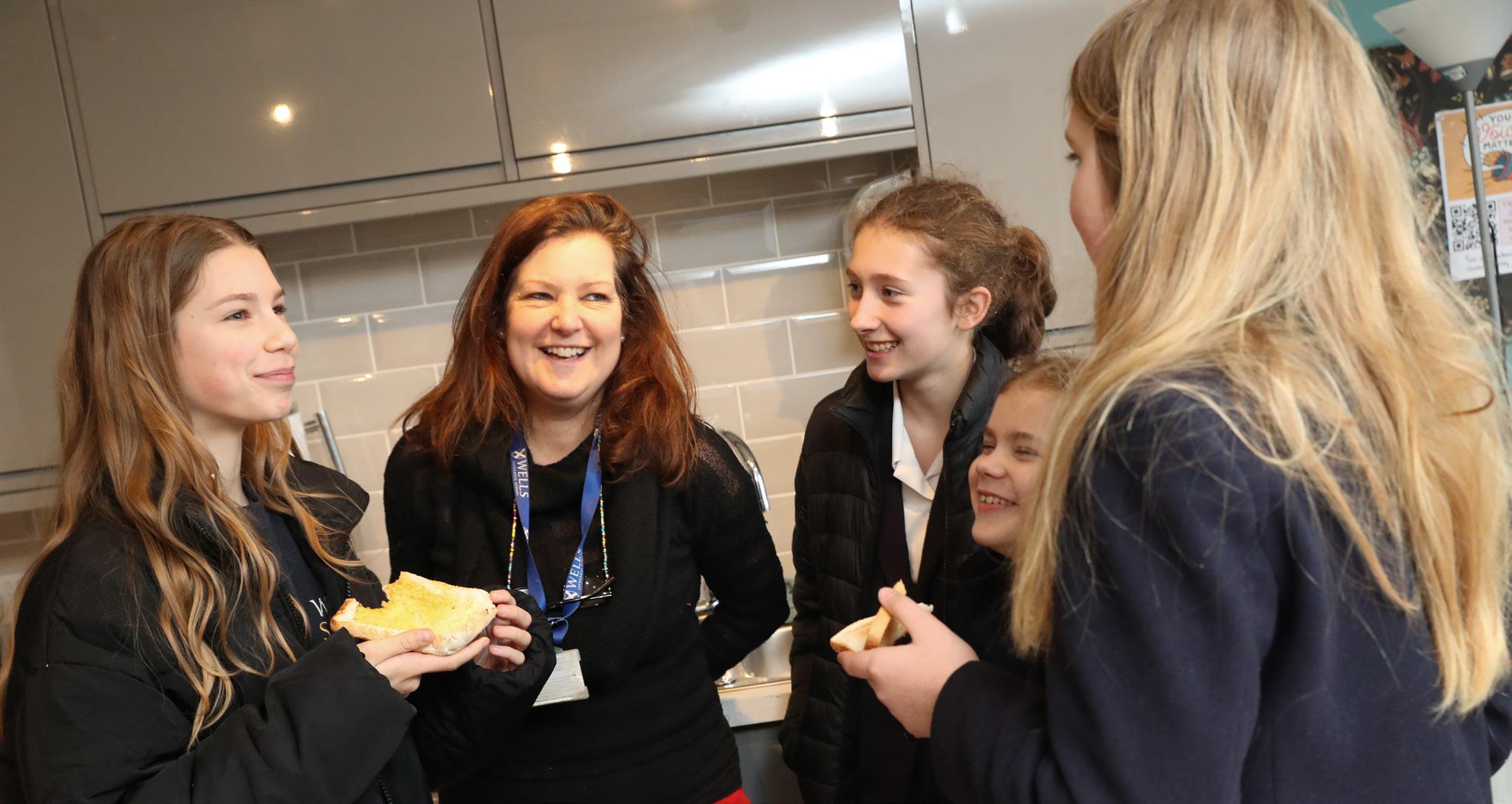
Pupils will be expected to be more independent, selfreliant and self-organised: a welcome development for many pupils but a challenge for most. We asked our previous pupils for their major worries at the start of the year. They told us they were:
• Getting lost
• Not having the right books and equipment
• Not being able to do the work
• Homework
• Not getting on with teachers
• Not making friends.
Some of these concerns are social, and children told us that they were no longer worried about these things after just one or two weeks. If your child expresses these worries, it’s useful to tell them this. To help with this we provide a peer mentoring system for the first few weeks.
The remaining problems are nearly all to do with the new organisational demands that they know will be placed on them. The information in this booklet and in our Senior School Handbook should allow you to help your child achieve independence whilst supporting them in getting there.
The things that have gone well for our current Years 7-9 are:
• Friendships
• Academic achievement
• Sporting achievements
• General enjoyment
• Clubs and activities.
The children’s top tips for success were:
• Be yourself
• Always ask for help
• Enjoy yourself
• Don’t be nervous
• Find your way around in the first week with your friends.
Time spent early on in establishing habits of work and independence are an investment that will save endless time, battles and heartache in the long run. The habits and routines that children develop at the start of their time at Wells are those that will stay with them throughout their school career and often into their working lives.
Understanding your strengths and weaknesses is a key part of making progress whether academically, creatively, on the sports field or by exploring the outdoors. To help you reflect on these, the School has in place a feedback mechanism which takes the form of parents meetings, grades and full reports. Each Long Term there will generally be an opportunity for feedback via either a parents meeting or a full report; in between these will be a more concise set of interim grades. At each stage the focus is on not only helping you understand how you have done, but also about giving you ideas on how to improve.
At each reporting point the key information presented will be in relation to your classwork effort, homework effort and overall achievement. You will receive reports on your wider school activities as well as your academic subjects. These reports, in conjunction with your tutor, will help you identify areas where you can improve.
Additionally, in Years 7, 8 and 9, pupils will have end of year exams which take place during the Whitsun and Trinity Terms.
Classwork and homework effort is graded on a scale:
Below expected standard/needs improvement
Achievement is graded on the following scale:
A+: outstanding attainment
A: very good attainment
B: good attainment
C: limited attainment, with some concerns about progress
D: well below standard attainment, with serious concerns about progress
This represents the teacher’s opinion of the quality of the academic work achieved by the pupil in that subject; it does not indicate a prediction for achievement at GCSE.
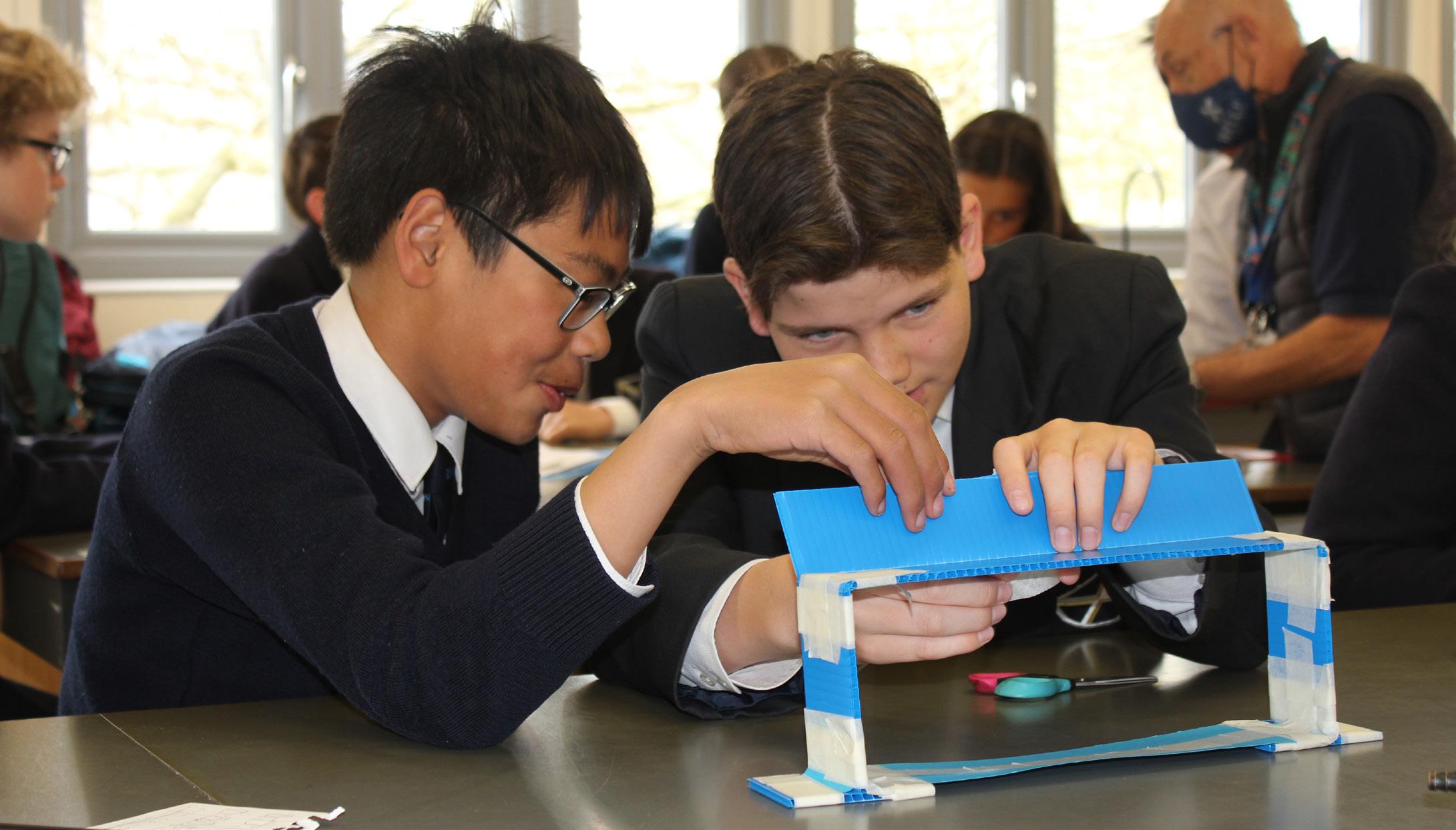
Put simply, you will learn about the Romans: their language, their way of life, their customs, and their impact on the ancient world and on society today. You will find out about aspects of life in various parts of the Roman Empire, including housing, schools, baths, trade, slaves, religion and entertainment, including gladiators!
In Year 7 you will begin to study the Latin language using Book I of the Cambridge Latin Course, and you will find out about life in the Roman town of Pompeii before it was destroyed by the eruption of Mount Vesuvius in AD 79 - and how it is that such a terrible disaster has taught us so much about Roman life.
In Year 8 you will continue with your study of the Latin language to include questions and commands and the dative case. You will also discover more about Roman life, including education, elections and an investigation into the terrible events surrounding the eruption of Vesuvius. We shall also start to look at life in the Roman province of Britannia and how Britain was changed by becoming part of the Roman Empire.
In Year 9 you will learn about life in two very different provinces of the Roman Empire. We shall complete our review of Britannia and then move to the hot, sandy province of Egypt and meet the turbulent citizens of Alexandria. You will learn more about the Latin language, further enhancing your language skills to include the genitive case and participles as well as expanding your vocabulary.
First and foremost, you will develop language skills from your study of Latin. You will learn how a language fits together and how to analyse a sentence to work out precisely what it means. You will be able to transfer these language skills to your studies of Modern Foreign Languages and English - and you will find that studying Latin vocabulary will help you to increase your wordpower in these subjects. You will also develop research, note taking and writing skills when you study aspects of Roman civilisation, and you will be given the chance to evaluate historical evidence and draw your own conclusions.
Your progress through the course will be measured by regular vocabulary tests, translation exercises and end of year tests in Years 7, 8 and 9.
No specialised equipment is needed in this subject beyond the School’s normal requirements for writing and drawing equipment.
During the course of your three years of study, you will also have the opportunity to visit local Romano-British sights to see for yourself the way the Romans lived and their impact on ancient Britain.
In the modern world, a comprehension of how computers communicate and operate is a fundamental skill that we all need as technology evolves. The computing provision in Wells Cathedral School has been designed to prepare pupils for the future and to provide skills to enable pupils to understand whether Computer Science is a subject to pursue.
Our Years 7-9 syllabus in computing is derived from The National Centre for Computing Education (NCCE). Run by a consortium made up of STEM Learning, the Raspberry Pi Foundation and BCS, The Chartered Institute for IT, which achieves a world-leading computing education for every child in the country.
Imagine a world without computer networks, and how different your life would be. There would be no more YouTube, Google, instant messaging, online video gaming, Netflix and iTunes. There would be no online shopping or quickly looking up directions to a location at the click of a button. There would be no more sharing of files or peripherals such as a printer, and no more central backups of information. As networks have evolved, society has become increasingly reliant on the services that they provide. They have changed the way we learn, work, play, and communicate.
This year begins by defining a network and addressing the benefits of networking, before covering how data is transmitted across networks using protocols. The types of hardware required are explained, as are wired and wireless data transmission. Pupils will develop an understanding of the terms ‘internet’ and ‘World Wide Web’, and of the key services and protocols used.
Practical exercises are included throughout to help strengthen understanding.
This year introduces learners to text-based programming with Python. The lessons form a journey that starts with simple programmes involving input and output and gradually moves on through arithmetic operations, randomness, selection and iteration. Emphasis is placed on tackling common misconceptions and elucidating the mechanics of program execution. A range of pedagogical tools is employed throughout the year, with the most prominent being pair programming, live coding and worked examples.
You will use this year to put the skills you have acquired to good practice by completing an extended project requiring you to use the more advanced and sophisticated features of Python programming: for example, implementing functions and developing local and global variables to develop a text-based adventure game.
The year begins with developing a prototype using Google Slides to build a fully interactive multimedia model of the adventure before learning extended programming techniques that are used to implement a text adventure game.
The computing syllabus will eradicate any misconceptions about how computers communicate and operate. It will provide pupils with a good understanding of how programming can achieve solutions only limited by imagination.
You will need to bring a laptop computer to every lesson to ensure that all the resources are fully accessible. A Chromebook, Windows, macOS or Linux based computer is recommended. A tablet computer, such as an iPad or similar, is not compatible.
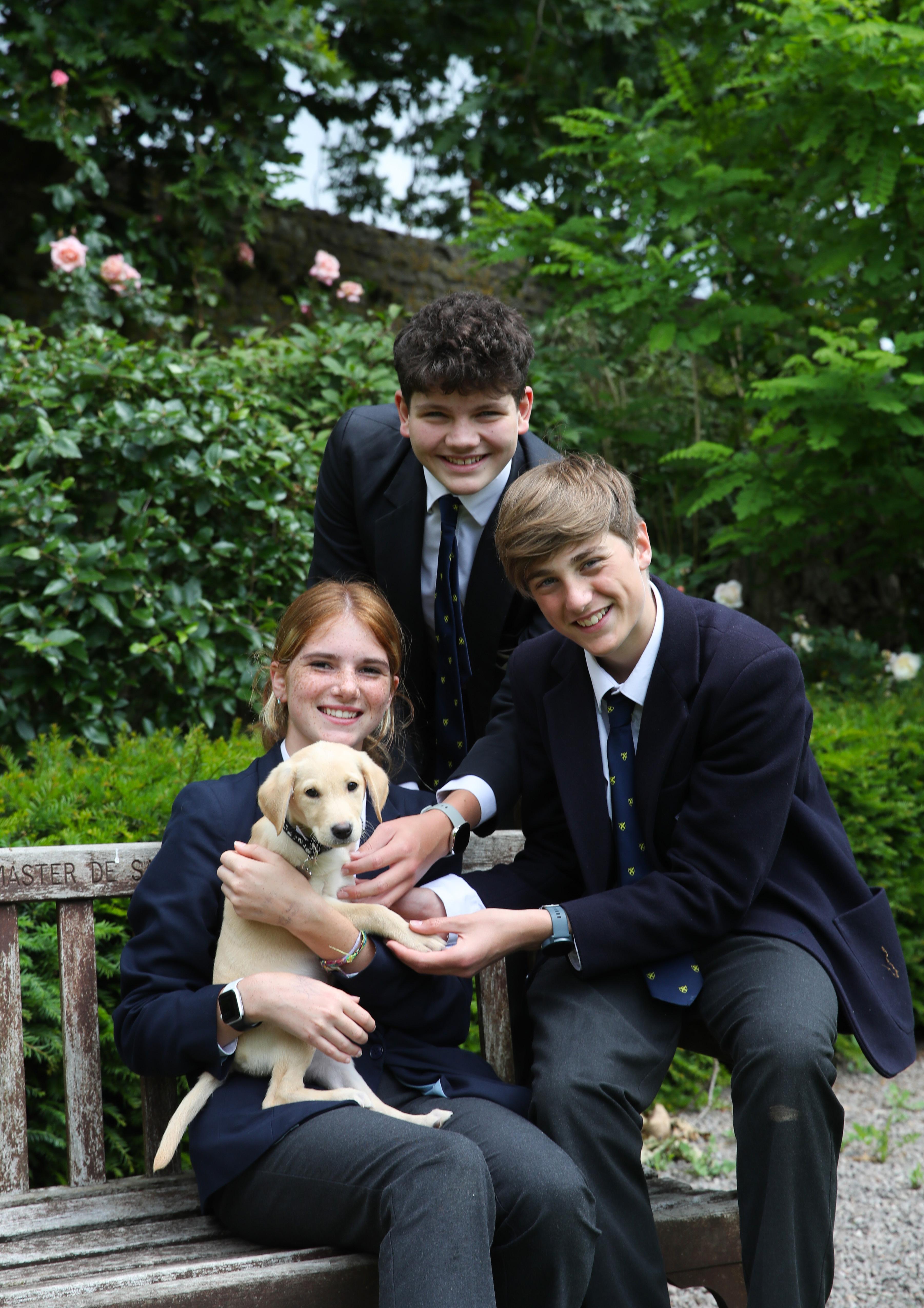
Throughout Years 7-9, we aim to provide pupils with an exciting and dynamic education in Art and Design, tailored to engage, inspire and challenge. Whilst actively creating a broad range of practical outcomes and critically engaging with the work of relevant artists, pupils are encouraged and supported in the development of their own individual skills and aptitudes - with a particular and equal emphasis on two key ingredients of the creative process; observation and imagination.
Pupils are encouraged to think both divergently and critically whilst solving problems and developing greater confidence in taking creative risks. The creative use of IT forms an integral part of the Art and Design curriculum during Years 7-9.
In Years 7, 8 and 9 the pupils will:
• Practically explore a diverse range of creative disciplines, ideas/concepts, techniques and types of media, developing relevant skills and understanding
• Develop skills in critically analysing and evaluating the work of artists and designers using relevant language/vocabulary
• Learn about the work of artists and designers from across the world and gain a greater understanding of the historical, cultural and individual context in which their work has been created.
The curriculum for Year 7 pupils primarily focuses on the development of fundamental skills, confidence and understanding in exploring a broad range of 2D art and design work/media whilst pupils create a variety of practical outcomes based on the theme of ‘Objects’.
The curriculum for Year 8 pupils primarily focuses on developing pupils’ skills, confidence and understanding through the exploration of a broad range of 3D art and design work/media, including sculpture, architecture, textile design and digital design/3D printing.
The curriculum for Year 9 pupils enables pupils to develop, refine and consolidate the skills, confidence and understanding they gained in Years 7 and 8, in conjunction with new creative experiences and learning opportunities in Year 9, whilst creating a range of outcomes based on the theme of ‘Identity’.
The Years 7-9 Art and Design curriculum aims to:
• Provide all pupils with a fundamental appreciation and understanding of Art and Design
• Provide all pupils with greater confidence in the development and effective use own creative ability and potential
• Prepare pupils wishing to study GCSE Fine Art/ further study and/or considering careers in the creative sector
• Provide all pupils with the creative problem solving skills and resilience necessary in a rapidly changing world
• Actively encourage all pupils to adopt a creative ‘growth mindset’ to help them navigate the challenges of the 21st Century, whichever future area of study or career path they choose to follow.
For samples of our work or to find out more, please visit: https://www.instagram.com/artatwells
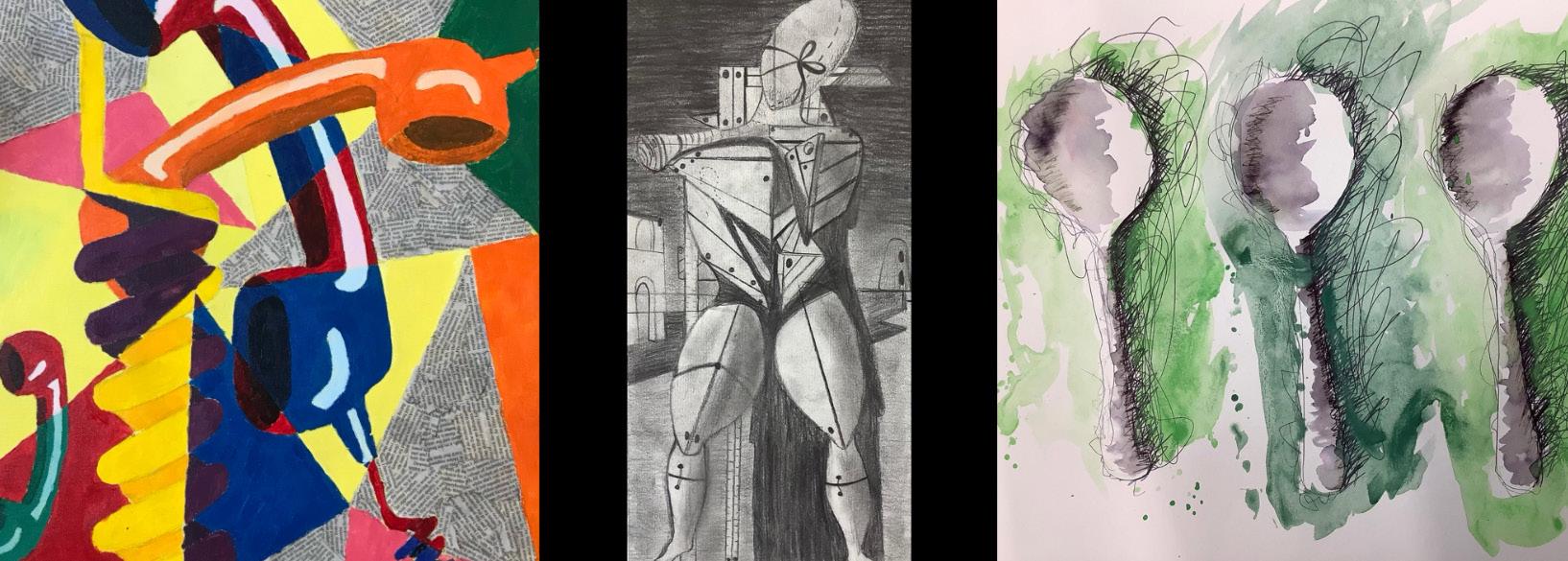
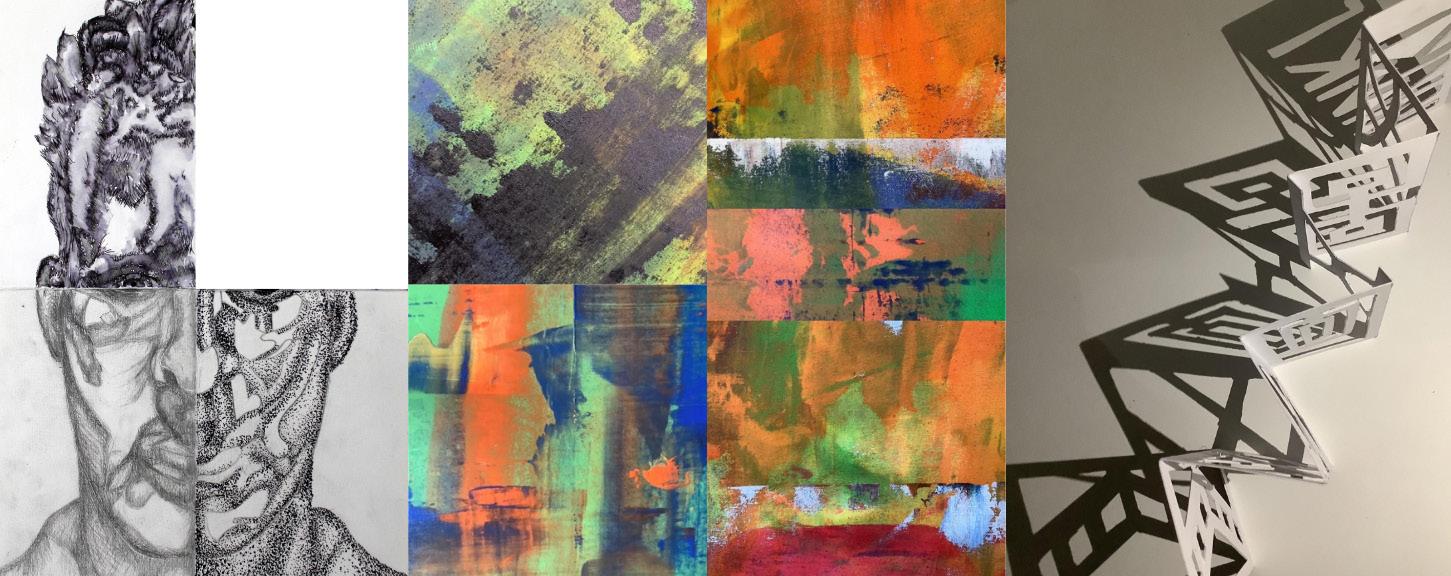
Drama is part of the Creative Arts Curriculum which is followed by pupils in Years 7, 8 and 9.
The Drama element of the Creative Arts course at Key Stage 3 will build on the skills learnt at Key Stage 2 and aims to develop an understanding of diverse dramatic styles through the exploration of a range of dramatic techniques, contexts and conventions. Exploration is topic based and aims to create an initial understanding of the historical, cultural and social contexts of theatre as well as introduce key practitioners, stagecraft and group dynamics.
You will also have the opportunity to learn and develop your skills through participation in workshops, theatre trips and productions
Through the exploration of a variety of: basic dramatic skills and games; topics such as fairy tales/legends and silent movies; contemporary texts; and Shakespeare, you will participate in a range of dramatic activities, evaluate your own and others’ contributions and be taught to:
• explore and use a variety of dramatic conventions to investigate ideas, issues, texts and meanings - such as still image, freeze frame, tableau, thought tracking and physical theatre
• explore and use different ways to convey action, character, atmosphere and tension in scripting and performing plays (e.g. through dialogue, voice, movement, pace, tension, gesture and body language)
• use and understand basic technical vocabulary and staging terms
• show a developing ability to improvise, create roles/characters, unlock language and tell stories
• show a developing ability to devise a piece of theatre
• show a developing ability to perform a piece of text - contemporary/Shakespeare
• show developing awareness and enjoyment of the ways groups work effectively (e.g. decisionmaking, problem solving, negotiation) and a willingness to accept responsibility and a collaborative approach
• show a developing ability to evaluate and constructively critique performance.
Through the continued exploration of: basic dramatic skills; topics such as melodrama, murder mystery and commedia; Shakespeare; and other contemporary texts, you will participate in a range of dramatic activities which consolidate, extend and build upon your understanding of the skills taught in Year 7 and develop your:
• use of dramatic conventions to explore ideas, issues, texts and meanings
• use of dramatic forms and techniques, to express ideas and feelings
• knowledge of Shakespeare and other texts practically, learning to unlock the language and explore characters and performance technique
• understanding of the historical, cultural, educational and social purposes of drama
• use of technical and staging vocabulary
• appreciation of drama in performance, both as a participant and as spectator
• ability to work collaboratively
• critical awareness.
In Year 9 we build on the foundation work of Years 7 and 8 through further projects routed around various theatre styles and texts, which may come as either the result of a direct stimulus of chosen topic, and aim to:
• consolidate and channel all of your learning in Years 7 and 8 into projects that reflect your understanding
• use a wide range of skills, techniques, forms and conventions within your projects to shape and script your work and give it meaning
• work in greater depth and detail and cultivate your ability to layer, refine and edit appropriately
• create authentic, credible performances
• discuss and analyse the themes and concepts in their work clearly and purposefully
• make sense of your work within the context of the wider world and its relevance within it and to it
• develop key skills: consolidation, creation, performance, evaluation
• provide extracurricular opportunities: workshops, trips and performance presentations.
Drama has an important role to play in the personal development of pupils. The skills and qualities developed by pupils in drama - such as teamwork, creativity, leadership and risk-taking - are assets in all subjects and areas of life. Drama stimulates the imagination and allows pupils to explore issues and experiences in a safe and supportive environment, whilst laying the foundations and developing all necessary skills of today’s potential performer. Skills are learnt in the classroom and honed in the many performance opportunities on offer, including school productions. Individual and group speech and drama lessons are also widely available and encouraged.
There are no formal examinations; formative assessment and evaluation takes place at the end of each unit and forms the basis of end of term grading. It is possible to take lessons in Speech and Drama leading to graded examinations.
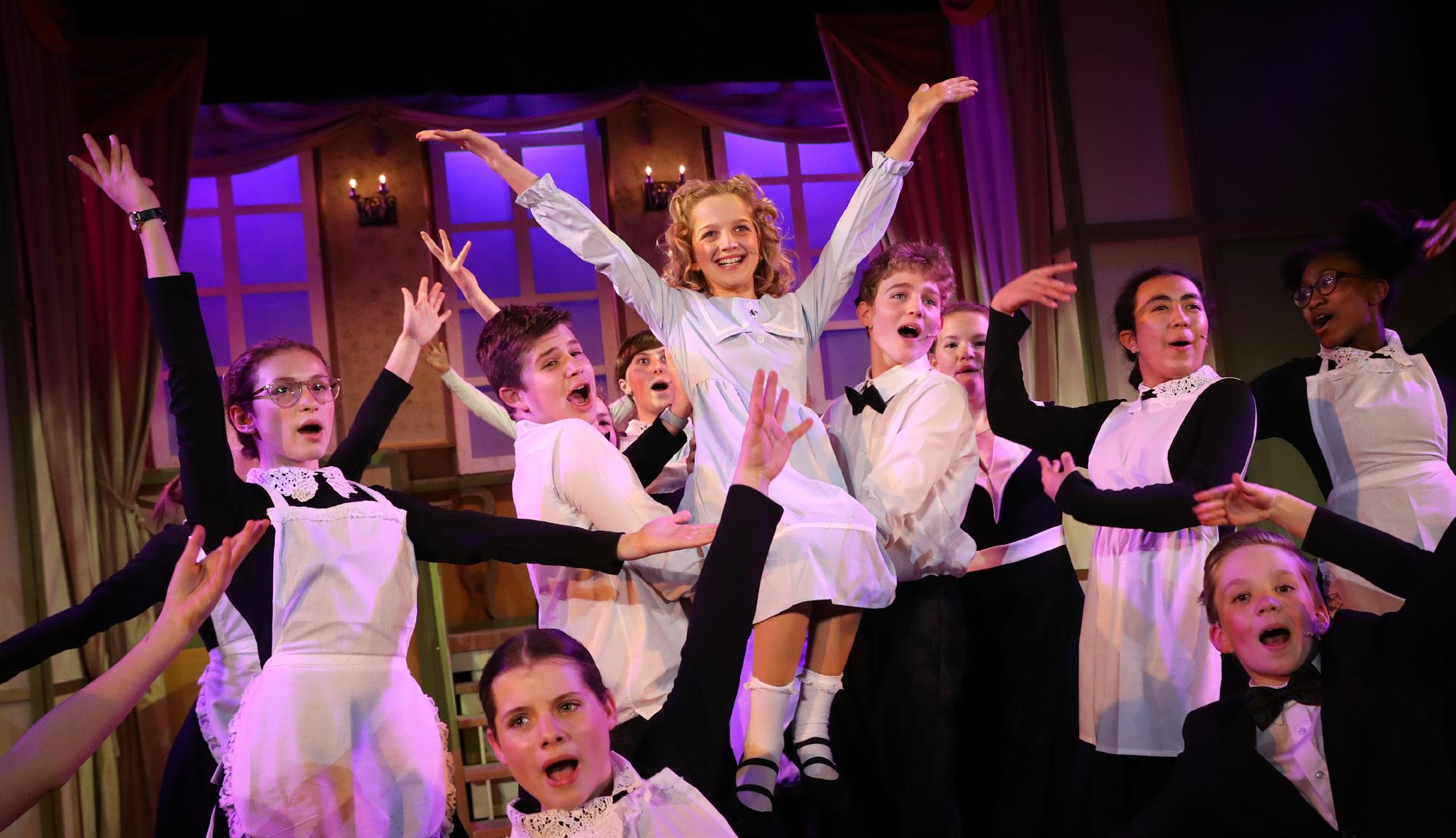
Food Studies in Years 7, 8 and 9 is taught through topics to incorporate a range of skills and knowledge.
Basic cooking skills will be learnt through lessons in food preparation techniques, diet and nutrition, hygiene and safety and wise food shopping.
Year 7
‘Fuelling up’: Investigate breakfast to include assessing products on the market as well as produce your own smoothies, cereal bars and breakfast muffins.
‘Snack attack’: Explore a range of snacks and how to snack healthily and make dips and dippers, toasted sandwiches, wraps and mini pizzas.
‘Take 5’: Investigate the range of fruits and vegetables available and the importance of them in our diet; create our own salads; compare commercial soups and produce our own.
‘Make it! Bake it!’: Study the function of ingredients in baked goods; analyse the range of breads; make bread (yeast based and soda) and create a seasonal scone.
‘Meal deal’: Research the ‘Eatwell balanced plate’ method of healthy eating; consider in relation to takeaway foods, investigating the range available; create your own burgers, make your own pasta and sauce to accompany.
‘Best of British’: Look at food issues such as fair trade, organic, food miles; taste and use local food in regional cookery.
‘Pie in the sky’: Experience the making and use of different pastries; produce mini savoury tarts with shortcrust pastry; use ready made filo and flaky pastries in other recipes.
‘In a stew’: Revisit combining food groups for the balanced plate of healthy eating; make main meals with a consideration of cultural influences such as tagine and curry; experience the use of a range of starchy carbohydrates.
‘Great pudding revival’: Create puddings and desserts with a specific focus on recipe modification for healthier eating.
What examinations will I take?
Continual assessment will be used.
Never assume that you do not need a fully equipped pencil case and your device in this subject! The School supplies all food items for practical work, for which a charge will be made to cover the cost of the ingredients.

Developing transferable communication skills that support health and wellbeing in all areas of life.
Throughout Years 8 to 9 the MBV curriculum aims to introduce pupils to a wide variety of vocal, physical and reflective skills that will enable them to become confident communicators with a strong sense of self and wellbeing. Whilst these skills essentially provide the building blocks for the performer, the main objective is to equip pupils with a toolkit of transferable skills relevant to all areas of life.
You cannot control what happens in life, but you can change how you respond to it. Understanding the nature of the mind gives a greater perspective on life, enabling an individual to become less distracted by issues that can potentially create frustration, impatience and anxiety. In MBV, pupils will learn to take ownership of their mind through various breathing techniques and meditation exercises that can soothe the nervous system, restore energy, reduce stress, and boost immunity to bring them back to a clear and positive state of mind.
Pupils will develop and build on their knowledge of:
• Anatomy and physiology of breathing
• Breathing fundamentals
• Mindfulness and meditation.
The physical body is an excellent place to learn and develop the principles of personal development. You can see it, feel it and measure it. In MBV pupils will learn to take ownership of the way their body functions and develops, as well as have the opportunity to think about how to use movement to explore and express ideas, thoughts, issues and feelings.
Pupils will develop and build on their knowledge of:
• Pure movement (body awareness, balance, flexibility, posture, stamina and strength
• Expressive movement (interpreting and conveying ideas and emotions through movement)
• Dance (basic principles of dance and movement through a variety of styles).
One of the greatest gifts we can give our pupils is a strong, clear voice. In MBV pupils will learn to take ownership of their voice and use it more clearly, easily and expressively. They will gain presence, confidence, more vocal clarity and improved dynamic expressivity that will support them in whatever path they choose in life. We are all more casual in the way we communicate today and styles of communication have definitely changed; we text more than we speak. However if you want to get cast in the play, or win the debate, it’s all about the voice. Can you be heard? Can you be understood? Are you vocally expressive enough so that your voice effectively conveys your message or character?
Pupils will develop and build on their knowledge of:
• Properties of the voice (tone, volume, pitch, inflection, tempo)
• Vocal anatomy
• Releasing the voice
• Breath and the voice
• Developing a vocal warm-up
• Expressivity (what can my voice really do now that I understand how it works?).
Pupils in Year 7, 8 and 9 will have the opportunity to explore the medium of digital photography through a range of creative projects. They will learn about camera skills, the taking and composing of images, and the different digital and hands on processes that photography can be applied to. They will also learn how to develop and present their work in a wide range of creative media. Practical work is supported by the study of photographers’ styles and their working methods, and pupils are encouraged to analyse images and ideas, considering meaning and the formal visual elements of composition.
Pupils will explore close-up composition whilst working with colour, shape and tonal contrast. They will learn about colour and black and white photography and the different qualities and challenges in working with outdoor and indoor lighting. Pupils will examine the work of photographers who specialise in close-up and macro photography, and they will be introduced to Adobe Photoshop and some creative editing tools.
Pupils will explore viewpoint and perspective in the natural and urban environment, focusing on abstract visual elements. Through examining the work of relevant artists and photographers, they will explore ways to interpret what they see creatively. They will learn how to apply more advanced Photoshop techniques such as selection tools, multiple layers and blending modes as well as hands on methods of photomontage.
Pupil will examine the work of portrait artists and photographers who use different methods in communicating aspects about identity and personality in their work. This will lead into creating their own personal responses. They will explore how to frame and light the human portrait using outdoor and studio light and how to apply Photoshop brush tools as well as hands-on methods for altering photographs and adding meaning.
Formative assessment takes place as work progresses which forms the basis of end of term grading.
Each pupil must bring their own named SD card to lessons. Their own camera will be useful but not essential; compact and/or bridge cameras are provided.
Much of what you do in these lessons and during homework will be extending your knowledge of writing, reading and talking about literature. Developing your creativity and your critical skills will be the main focus of your work in English, and we will aim to ensure your English lessons are enjoyable and inspiring!
You will develop many writing techniques over time as you learn how to write creatively, persuasively and analytically. You will also develop your reading comprehension skills as you discuss and write about ideas, characters and situations from many forms of literature such as short stories, novels, poetry and drama, including several of Shakespeare’s plays. You’ll learn something of our enormous literary heritage as well as be encouraged to try out all the latest, most exciting children’s literature. There is a huge selection to tempt you in the School Library and a book list to help you make choices to suit your taste. You will also learn to become more accurate in your use of spelling, punctuation and grammar, and you will learn to develop wider oral and written vocabularies through which to express your ideas.
We have established a rich range of extra-curricular activities, including writing competitions, author visits and theatre trips. You can also join the thriving Book Club, which shadows the Carnegie book prize, take on the ‘Ten Book Challenge’ and become a champion reader!
In Year 7 you will follow an exciting course based on six broadly themed units of work. This will give you lots of opportunities to explore the different aspects of the subject within the framework of topic areas which your teacher will select in an order which suits the class. You will also study at least one Shakespeare play. To help you in this and in all your work, you will also be given a short course on library skills. You will read at least three class texts as well as a number of personal reading books during your reading lessons. Each week you should expect a spelling test or a lesson relating to technical
Mr N Bowenaspects of the subject. You will start our new, exciting and personalised reading journey that will encourage, fuel and challenge your reading!
The programme continues in Year 8 with six more interesting topic-based activities. Again, this will be supported by interactive whiteboard materials. From this course it is expected you will experience a range of genres and develop your critical vocabulary through discussion and written tasks. In addition you will study Romeo and Juliet and carry out a project linked with the play. You will be expected to carry out independent research within a framework supplied by your teacher using the School Library facilities. You will also read at least three class texts as well as a number of personal reading books. You will write stories and poems and be encouraged to enter competitions. We aim to offer the whole year the opportunity to visit the theatre. Spelling and technical monitoring will continue as in Year 7.
This year you will be working increasingly towards GCSE standard, building on what has been covered in Years 7 and 8. Topics might include Gothic fiction, Shakespeare in film and First World War writing, to name but a few. You will make progress in the planning and structuring of discursive and analytical writing, learning to use close textual analysis to good effect. You will become increasingly confident in your use of critical vocabulary and in your approach to creative writing, using a variety of different models to express your ideas. You will also read at least three great class texts, as well as a number of personal reading books. After the summer examination you will have the opportunity to work towards iGCSE with an aspirational unit. Throughout the year your work will be assessed using the National Curriculum.
From Year 7, where pupils work at communicating a simple message and at getting to know the sounds of French to Year 9, where pupils refine utterances by studying more complex grammar, the emphasis in lessons is always on using French for a practical purpose. To this end, you should expect that your teacher will speak in the target language from day one. This can be bewildering at first but will contribute to your progress in the language. You will also listen to recorded French on a CD player as well as watch television programmes in French.
All Year 7 pupils will learn French on its own (five lessons a fortnight), in order to level the playing field and ensure a solid basis in the language that the majority will have done in Primary school. It will give us a chance to get all pupils to a sound and confident start in languages at Wells Cathedral School. They will pick up a second modern language, currently German or Spanish in Year 8, which they will continue together with French until the end of Year 9. In Year 8, they will have one hour per week of French, and in Year 9, they will have three hours per fortnight.
Getting to know French – you will concentrate on communicating information about yourself as well as understanding simple information given by others. Topic areas include home life; likes and dislikes; hobbies; pets; French festivals and regions of France.
French Encore – you will refine the French you have learnt in Year 7 as well as develop more independence of expression. You will cover topics such as the world around us; the environment; cafés and restaurants; staying with a family; shopping and health.
As most of you have done French since Year 7, you will be developing your competence further. Your communication skills will be more advanced by now; you will be able to comprehend grammatical terminology and use different tenses in all verbs so that you can talk about both past and future events. You will be able to manipulate the language with more ease.
You will be able to use essential utterances in Year 7 and by Year 9 you will have developed these into more comprehensive phrases. You will understand increasingly demanding written texts and spoken passages. You will use ICT to communicate with the French-speaking world. Pupils will also be able to choose from listening and reading resources in the library to enhance their learning if they wish, including music CDs and DVDs.
There are no public examinations but there are end of term examinations which assess the term’s work as well as end of year examinations. These examinations will assess speaking, writing, reading and listening.
You will be provided with a textbook and an exercise book for neat work, grammar, vocabulary and preparation. The textbook is called ALLEZ books 1 and 2.
We have one exchange with a French-speaking school in Geneva, the Institut Florimont, open to pupils from Year 9 to Year 11, as you need to be a bit more mature and confident as you stay with a Swiss or French family for a week, and you then host your partner in your home.
You will encounter interesting and up-to-date geographical issues. The course comprises of themes of both physical geography, related to the world’s natural environment, and human geography, which concentrates on the nature and impact of human activities on Earth. As a result you will develop your sense of place and knowledge of the world around you.
We start by studying what we mean by physical and human geography and consider how landscapes are evaluated. Following this, pupils are taught comprehensively about the UK’s geography, with emphasis on its physical geography, climate, settlement, industry and agriculture. Throughout the year pupils study maps: from their development and uses to essential skills such as understanding scale, height, and planning routes. In March, we travel to Glastonbury to study the nature of the town as well as climb the Tor and learn how to use geographical equipment. Pupils learn about the school microclimate, using equipment to study it, and finish the year with a research project on the UK’s National Parks.
The work begins with a study of human population, including population density and distribution. Dense and sparse populations are explained in the context of particular parts of the world. The reasons for the world population explosion are considered and related back to theories such as Malthusianism. In the Rivers section pupils learn about fundamental processes of erosion, transportation and deposition as well as landforms created by river systems. We continue with world development, including the reasons for inequalities, how we measure them as well as the role that charities, fair trade and other means play in trying to bridge the gap between developed and developing countries. We continue with a case study of Africa, covering elements of both its physical and human geography. We use Sierra Leone for our case study evidence. We finish the course with a study of limestone, using the Yorkshire Dales and Mendips as case studies, with a trip to Cheddar Gorge.
We begin with a case study of Japan, looking at physical geography, human geography and the interrelationships between the two in this fascinating country. In our next section, we look at earth sciences, much of which helps pupils greatly with their AQA GCSE geography course. This section includes earthquakes, volcanoes, continental drift and plate tectonics, meteorites and possible causes of the mass extinction of dinosaurs. The next section is closely linked to the GCSE course and includes a study of ecosystems, cold environments and tropical rainforests. Finally, pupils will make a short study of both UK and global tourism patterns, including methods of representing trends graphically.
The skills that you learn will be of importance throughout your school geography career. You will learn how to read maps, use an atlas, and draw graphs and charts as well as more specific skills. Learning how to research assignments and follow assessment criteria is included in the curriculum. Enquiry is very important and there are opportunities throughout the course. You will also apply simple data analysis and graph skills learnt in other subjects as well as extend your ICT skills.
Assessments are taken at the end of each section of the course, and there is also an end of year exam for each year group.
No specialised equipment is needed in Geography beyond the School’s normal requirements for writing and drawing equipment. You will also need an exercise book; for Year 7, a copy of the textbook Foundations will be provided.
All Year 7 pupils study French as a core language for one year. If you are already fluent in French, please contact Ms Desmarchelier immediately so that your son’s or daughter’s course in languages can be modified if possible
All pupils get the opportunity to pick up German, as well as French in Year 8. This will mean an accelerated course in German with fewer lessons overall each year: pupils will get three lessons of German and two lessons of French per fortnight. Learning two languages continues in Year 9, giving pupils a chance to opt for both languages at GCSE.
You will use a textbook called Zoom Deutsch. You will concentrate on communicating information about yourself as well as understanding simple information given by others. Topic areas include home life; likes and dislikes; hobbies; pets; weather; appearance; character; directions; sports; holidays; school life; free time and jobs. You will start to be able to refer to events in the past. The emphasis in lessons continues to be on using German for a practical purpose. So you should expect that your teachers will speak in German a lot of the time. This can be bewildering at times, but don’t panic; it contributes to your progress in the language and you will already be used to it from your French lessons. You will also listen to recorded German on a CD player, watch television programmes in German and use digital materials on the interactive whiteboard.
All pupils will have done at least one year of German and so their communicative competence is by now more advanced; they are able to understand grammatical terminology and use different tenses in all verbs. By now they can talk about past events and future events. In Year 9, pupils get three lessons of German and three lessons of French per fortnight.
You will learn to understand the German you hear and read, and to say and write messages, express opinions, ask for things, tell simple stories and talk about your own experiences. All this will help you to listen and read carefully, to write accurately and to think about how language works to express meaning. You will use ICT to become familiar with aspects of the German-speaking world.
There are no public examinations but you will be tested regularly on the vocabulary and grammar you have learnt in order to check your progress in these key areas. There are end of year tests which assess the basic language skills of speaking, writing, reading and listening.
You will be provided with a text book and an exercise book for neat work, grammar, vocabulary and preparation. We use a textbook called ZOOM DEUTSCH books 1 and 2.
The bi-annual trip (one week in Germany) is open to all pupils studying German. Year 9 is an ideal time to take up this opportunity, but those in Year 8 are also very welcome.
We are also organising a Christmas market overnight trip in December.
The Wellensian history syllabus will encourage you to engage in historical enquiry during which you will learn to use different ways of finding out about the past. You will use narrative to describe accurately what happened in history, ask questions and explain why events happened and look at causes and consequences. It also means learning to reconstruct the past to help you to understand events more fully.
The unifying purposes of the syllabus are to instil a solid grasp of the narrative of British history as well as develop transferable skills and a love of the subject.
Pupils can solidify their learning with our popular trip to the battlefields of the First World War which takes place in alternate years (the next trip is planned for 2024).
The syllabus covers the period 410 AD – 1485. From the fall of Roman Britain we follow a chronological survey of the major events, key individuals and daily life beginning with the Anglo-Saxons and traversing through the Medieval Period until the death of the last medieval King, Richard III at Bosworth, which heralds the dawn of the Tudor era. It is a period rich in colour, mystery and faith during which the building blocks of the British nation were shaped. We round off our studies with visits to Chepstow Castle and Tintern Abbey.
In this year we examine the early modern period of 1485-1789, the era of the Tudors, Stuarts and Hanoverians. We look at issues such as the seismic religious transformation of England under the Tudors, war at home and abroad from the Spanish Armada through to the early days of the British Empire, the ups and downs of life in this turbulent era, the colourful life and times of individuals such as Henry VIII and Charles II and the significance of political events such as the execution of Charles I and the Glorious Revolution in shaping the British state into its current form.
This year studies modern history which broadly begins with the Industrial Revolution in the mid to late 18th century and ends with the turn of the second millennium. Given the complexity of this era, we break from the chronological structure of previous years, and rather assess broad trends across the period such as the evolution of democracy, revolutions in warfare, the changing role of British women and the effects of industrialisation and urbanisation. We have an annual Year 9 trip to SS Great Britain in Bristol.
You will learn to recognise and analyse change and its impact, and you will develop the ability to analyse causes and make judgements. You will explore a wide variety of past ideas and attitudes through understanding the differences between then and now. Becoming increasingly aware of different interpretations, you will learn to analyse these differences and to use sources critically. You will collect sources for an enquiry, using them to present an independent answer.
The history examination comprises an unseen section and a short essay question on material covered during the year. We believe this provides the most realistic picture of a pupil’s historical development during the course of an academic year.
No specialised equipment is needed in this subject beyond the School’s normal requirements for writing and drawing equipment. You will also need a purple exercise book and a textbook for the appropriate Year group.
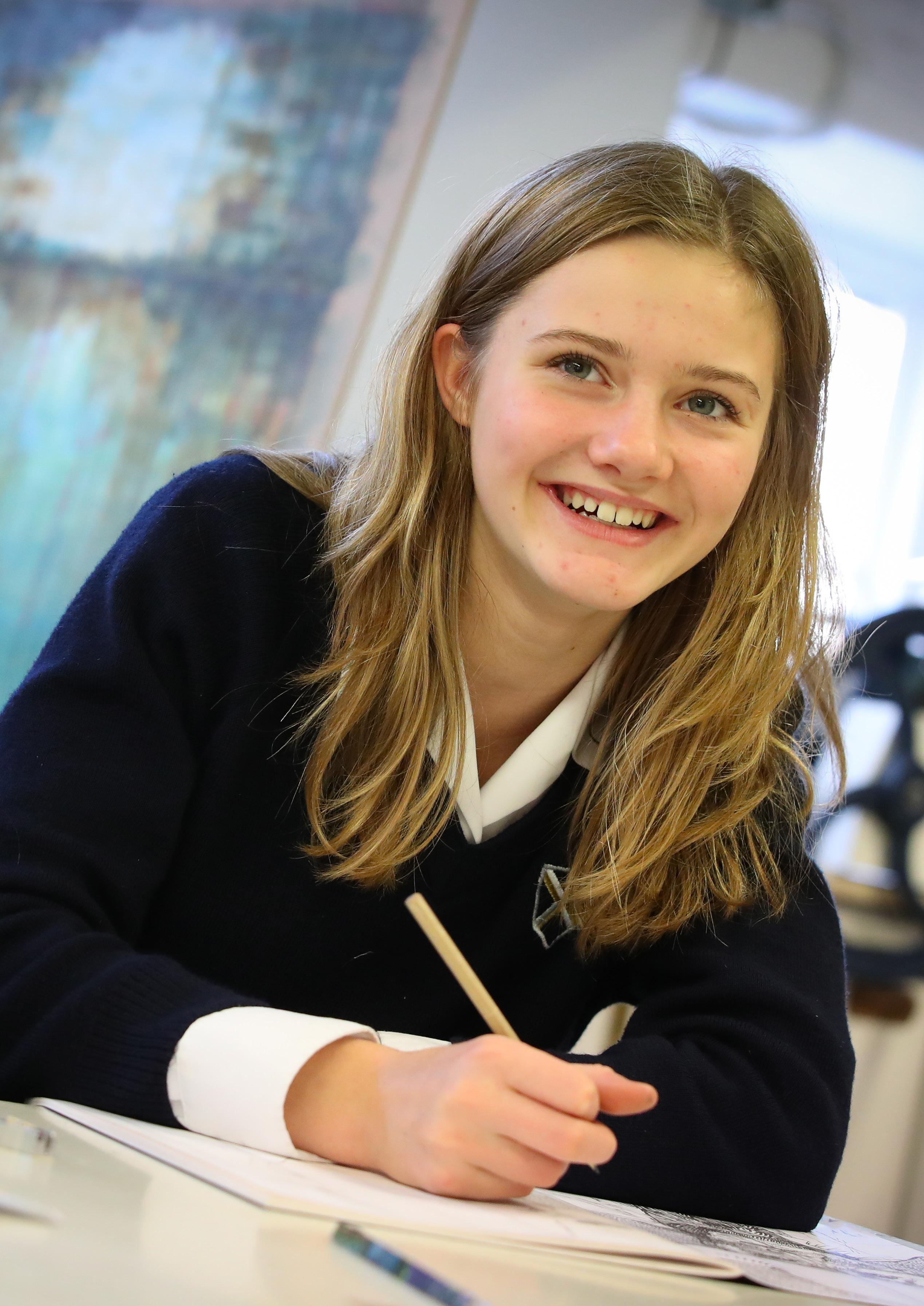
The department prepares pupils for a platform of mathematics that enables them to progress onto IGCSE and achieve success commensurate to their ability. Mathematics is a pyramidal subject – which means that each new topic builds upon one or more of the topics studied earlier. If some of the topics are not secure, you will not be able to build effectively upon them. Pupils learn at different paces in mathematics; some will grasp new concepts quickly, others need to do lots of practice in order to feel secure with the topic. It is therefore important that you are able to learn at an appropriate pace and in such a way that you feel secure in the knowledge you are building up. A flexible setting arrangement allows the most able pupils to be identified and to approach the more difficult topics in an imaginative and challenging way whilst allowing others to be provided with a more individual approach suited to their ability. In each year you will study aspects of using and applying mathematics: number and algebra, shape, space and measure and handling data.
Elementary problem solving, using the four operations with whole numbers, fractions, decimals and negative numbers; special types of numbers (primes, factors, multiples) and sequences; linear equations and formulae; work on angles; quadrilaterals and triangles; metric and imperial measures; co-ordinates and straight line graphs; symmetry and congruence; area and perimeter of simple (rectangular) compound shapes; volumes of simple solid shapes; data display; elementary probability; comparing and grouping data; mean, median and mode. There will also be some spreadsheet ICT work.
Mathematical modelling and ‘real life’ examples; indices and approximation; arithmetic with fractions and decimals; percentages; formulae and sequences; equations and simple inequalities; simple simultaneous equations; simple polynomial equations; polygons; area of parallelograms, triangles and circles including the relevant compound shapes; circumference of a circle;
volumes of cylinders and other prisms; Pythagoras’ theorem; reflections, rotations, translations and enlargements; bearings; graphs (including gradients and quadratic curves) and travel graphs; probability; scatter graphs and elementary correlation; continuous and discrete data; frequency polygons.
Elementary ideas about proof; advanced simultaneous equations, formulae, percentages; areas and volumes; ratio and proportion; inequalities and simple linear programming; quadratic equations; algebraic products, factors and fractions; transformations; similar figures; trigonometry; loci; graphs (e.g. parabolas, hyperbolas and cubics); simple circle theorems; further types of probability and statistics including tree diagrams, cumulative frequency and interquartile range.
You will be able to communicate mathematically, be able to confidently carry out calculations both with and without a calculator and to understand when it is appropriate to make use of both technological and other aids and which one to select. You will be able to select an appropriate technique to solve a problem.
There will be tests at various points throughout the year and you will sit an end of year examination in Years 7, 8 and 9.
As well as the usual pencil case equipment you will need a long (15 cm) ruler, protractor and pair of compasses. You will need and be expected to bring a scientific calculator to each lesson. You will be issued with text books, orange covered 5mm (or 7mm) squared exercise books and other books, graph paper etc. as required.
Our Specialist Mathematics Scheme is designed for gifted mathematicians who want to be challenged and have undertaken the selection process. Pupils with an enthusiasm and passion for mathematics will enjoy being stretched through this scheme, which will ultimately see them able to fulfil their mathematical potential whilst experiencing a rounded education. Specialist Mathematicians are resilient and enjoy taking risks. They have enquiring minds and relish looking deeper into mathematical ideas.
In Years 7 to 9, Specialist Mathematicians are taught in a separate class and have an additional three periods of maths per fortnight. This allows us to cover the year group curriculum, extension curriculum and enrichment topics, which broaden pupils’ mathematical awareness and interest.
Next year these are some of the additional enrichment topics pupils will explore:
Year 7
• Base arithmetic
• Graph theory
• Code breaking
• Language of maths
• Factors and primes
Year 8
• Codes and matrices
• Graphs including linear programming
• Modular arithmetic
• Decision maths
• Mathematical art
Year 9
• Solving equations with matrices
• Critical path analysis
• Matrices and geometry
• Computer coding
Specialists also take part in weekly problem solving tasks set by Simon Singh and national competitions such as the UK Maths Challenges and the Southampton University Maths Challenge. We encourage pupils to explore maths beyond the classroom through books, podcasts, websites, external talks and the ever popular ‘Maths Movie Nights’.
Pupils will sit the same tests and end of year exams as the rest of the year group so that we can monitor their progress alongside their peers.
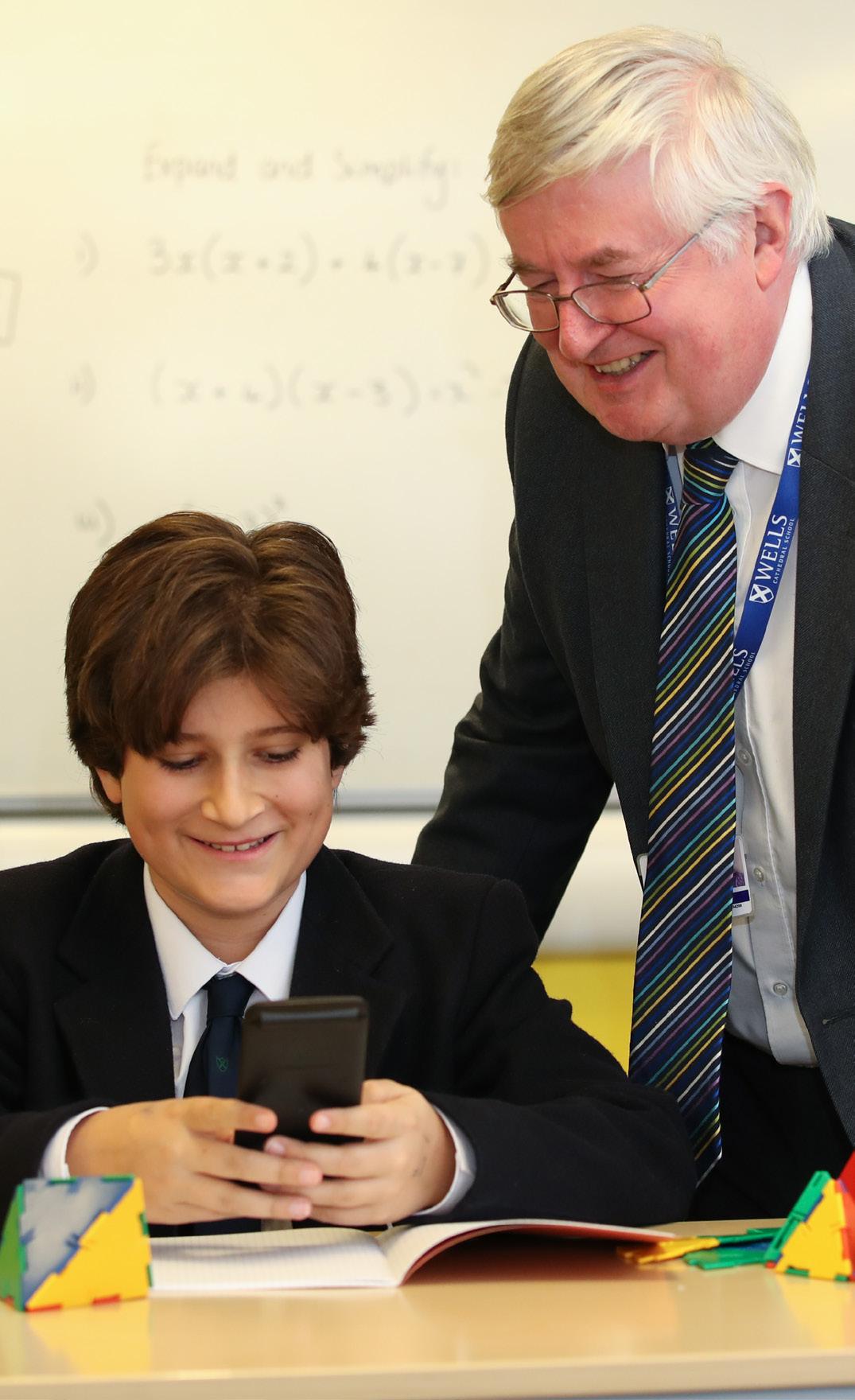
Through their weekly lessons, pupils in L, K and J forms will be exposed to a broad range of musical topics, gain practical performance skills and experience a wide range of music technology and develop their skills with notation. Lunchtime sessions on aural and theory are available for pupils wishing to take external music performing or theory examinations, and we offer a full range of one to one instrumental and vocal lessons (additional fees apply).
The course aims to prepare every pupil with the skills needed for GCSE Music, no matter their experience.
Year 7
• Instruments of the orchestra, including Britten’s Young Person’s Guide to the Orchestra
• Introduction to the brass family, including learning the basics of trumpet and trombone playing
• ‘Found sound’ recording project using Soundtrap software
• Composing with Noteflight (1)
• Brazilian Samba drumming project
• Gamelan
• Foundation notation skills
Year 8
• Exploration of Vivaldi’s Four Seasons
• Film music
• Film music composition with Soundtrap
• Composing with Noteflight (2)
• Caribbean and Reggae
• African drumming
• Developing notation skills
Year 9
• Exploration of Prokofiev’s Dance of the Knights
• The elements of music
• Composing with Noteflight (3)
• The blues
• Pop song composition
• Video game music and Microbitz project
• Developing notation skills
Throughout Years 7-9, you will develop your skills in performing, listening, composing and writing about music. You will learn to read and write music and to work with the latest music technology. Many of you will take instrumental lessons too, further developing your performing skills. You will develop these skills to an appropriate level for you. In addition to your curriculum music lessons, there are also opportunities for pupils to participate in choirs and ensembles of various kinds. Further performance opportunities include concerts and the annual production.
You will take an internal school examination at the end of every year. In addition, pupils can take external theory and practical examinations.
As well as the standard pencil case equipment, you will need:
• A pair of wired (3.5mm jack) headphones
• A device
• A music folder
Specialist Musicians and Choristers enjoy an enhanced academic music provision in Years 7-9. Over five hours per fortnight pupils work on topic-based work, composition and theory work, as well as developing their aural skills. Music Specialists and Choristers in the M form follow a different timetable and distribution of lessons from non-specialist musicians, which allows for practice during the school day and chorister musicianship. Tutors will be in touch with pupils and parents to discuss the best timetable options for each pupil.
The aim is that every pupil who sees through the ‘M form’ course in Years 7-9 will have successfully passed at least Grade 5 in theory, and have the opportunity to sit Music GCSE at the end of Year 9.
Year 7
• The concerto in the Baroque and Classical periods
• Orchestral instruments and the development of the orchestra
• Composing for your solo instrument
• Aural, theory and harmonic work
• Rock ‘n’ Roll of the 1950s and 1960s
• Solo pop artists 1990 to the present day
• Music of the Caribbean and Brazil
• African drumming
• Basics of music technology
• Performance work
Year 8
• Rock Anthems of the 1970s and 80s and Pop Ballads of the 1970s, 80s and 90s
• Film Music
• The Concerto in the Romantic period
• Aural, theory and harmonic work
• Composing for ensemble
• Performance work
• The Music of North India
• The Music of the Greece and the Middle East
• Revision for GCSE Music Exam
• Composing to a brief
• Aural, theory and harmonic work
• Performance work
What skills will I develop?
You will develop your compositional, harmonic, theoretical, performance, aural and discursive musical skills. You will develop your individual creativity in your compositing and performing work. You will become conversant with a wide range of musical terminology to describe and appraise a variety of musical styles, learning how to write accurately and incisively about music.
M form pupils will also have theory and aural training lessons and will be prepared and entered for Associated Board theory exams to at least Grade 5 level, some will also go on to sit the higher grades during Years 7-9. Eligible pupils will have the opportunity to enter for a GCSE in Music in the summer of Year 9.
As well as your pencil case equipment, you will need:
• A pair of wired (3.5mm jack) headphones
• A device (Mac/PC preferable to Chromebook for access to music software)
• A midi keyboard (optional but very useful for completing prep at home / in house)
• A music folder with manuscript paper (provided)
• Theory workbooks (provided)
On occasions you will also be asked to bring your instrument.
This is your opportunity to discuss and learn about issues relating to you - how they affect you and how you can affect them. You will do this through class and group discussions, debates, role-play drama, videos and written work. You will learn about yourself and the changes that will affect you during puberty as well as focus on general health and hygiene. You will look at issues outside your immediate area of experience, how they affect others and how you can help to change things and become a responsible citizen. Because your lessons are centred on you, sometimes issues come up which you would like to discuss in addition to the topics outlined below.
Introduction to school and routines will be covered as well as health and diet issues. We shall also focus on fitness, personal hygiene, growing up, friendships, bullying and teasing, personal safety (including internet and mobile phone issues), family groups, similarities and differences.
In this year we shall discuss the use of leisure time, our responsibilities and our environment. We will also talk about disabilities and charities. We shall discuss the use of drugs ( including smoking), and medicines. We shall also focus on emotional development, self-awareness and friendships.
This year’s topics will include decision-making, subject choice, self-discipline, drugs and sexual development (including contraception and STI’s). We shall revisit relationships, looking particularly at those with parents and with friends.
It is hoped that you will learn to express yourself, develop an argument, listen to other opinions respectfully and accept that different is not necessarily wrong.
PSHE is a non-examinable subject, and you will not receive a grade or an end of term report in this subject as this would not be appropriate for the material
You will be issued with materials as and when needed.
Mr B Poxon
In Year 7 we commence with a fascinating study of Buddhism, which many think is more of a psychology than religion, before moving on to a study of the fastest growing religion in the world, Islam, and its five pillars. We then discuss and analyse two ethical issues in the Whitsun and Trinity terms, including looking carefully at different responses to the question ‘should we eat meat?’
In Year 8 pupils study Christian understandings of the nature of God as seen (and not seen!) in the film Bruce Almighty, as well as the problem of evil. The intriguing religion of Hinduism is then studied before moving towards a critical look at Plato’s philosophy and his metaphysical definition of reality. We then ask the challenging question, ‘where does morality come from?’
In Year 9 pupils really drill down into ethical issues, studying positions which judge the rightness of an action by its consequences, and a very different viewpoint that says some things are right, regardless of the outcome. Christian principles and teachings such as the sanctity of life are then applied, with critique, to the ethical dilemmas raised by both abortion and euthanasia.
Knowledge about the basics of Christianity and other religions as well as an understanding of how religion has affected and continues to affect the history, culture and behaviour of those who practise it and others. You will develop an awareness of theological and philosophical reasoning, religious truth and spirituality. We also aim to foster an ability to think critically and make judgements by evaluating philosophical arguments.
Each unit will finish with some form of assessment and there will be an end of year exam at the end of each school year.
Exercise books will be issued and relevant textbooks loaned. Otherwise, all you need are pens, pencils, colouring pencils and a brain in gear.
You will build on your scientific knowledge and understanding and make connections between different areas of science. You will use scientific ideas and models to explain phenomena and events, and to understand a range of familiar applications of science. You will think about the positive and negative effects of scientific and technological developments on the environment and in other contexts.
In Biology you will study cells; reproduction; muscles and movement; ecosystems.
In Chemistry you will learn about how the particle theory explains the properties of solids, liquids and gases; atoms, elements and molecules; separating substances; acids, alkalis and salts.
In Physics you will focus on energy transfers and fuels; forces and motion; electric circuits.
In Biology you will learn about food and nutrition; breathing and respiration; unicellular organisms; plants.
In Chemistry you will focus on combustion; the Periodic Table; metals and their uses; rocks and the rock cycle.
In Physics you will study magnetism and light as well as complete a project on the viability of life on mars.
Teaching for the Edexcel GCSE in science starts at the beginning of Year 9. All Year 9 pupils will follow a common curriculum in biology, chemistry and physics. These specifications have no controlled assessment and less focus on some aspects of how science works (for example, there is little sociological, economic and geographical content) thereby leaving time for a more detailed study of scientific knowledge and the development of scientific enquiry and practical work skills that are essential for further study in these subjects.
Your understanding of scientific investigations and practical work is assessed through written papers and the terminal assessment model, which is designed to ensure that the maximum amount of time is left for teaching science without frequent interruptions for examinations. Further details can be found in the GCSE handbook.
You will take account of others’ views and understand why opinions may differ. You will do quantitative work, carrying out investigations on your own and with others. You will evaluate your work, in particular the strength of the evidence you and others have collected. You will select and use a wide range of reference sources and communicate clearly what you did and its significance.
The course in Year 7 and Year 8 is divided into ‘blocks of work’ which correspond to chapters of your textbooks. End of block tests are used to monitor your progress throughout the course, and end of year examinations are taken in Years 7 and 8. In Year 9 there will be internally set and marked tests, but no public exams. These will not be sat until the end of Year 11. The internal testing will allow us to make recommendations to you about entry for Combined or Separate Sciences. Further details can be found in the GCSE handbook.
You will need to bring the equipment you take to all lessons, including a dictionary, a calculator and drawing instruments. All specialised equipment is provided in lessons including safety spectacles, which you are required to wear for all practical work, and laboratory coats which you may be required to wear for some lessons.
All Year 7 pupils study French as a core language for one year. If you are already fluent in French, please contact Ms Desmarchelier immediately so that your son’s or daughter’s course in languages can be modified if possible!
All pupils get opportunity to pick up Spanish, as well as French in Year 8. This will mean an accelerated course in Spanish with fewer lessons overall each year: Pupils will get three lessons of Spanish and two lessons of French per fortnight. Learning two languages continues in Year 9, giving pupils a chance to opt for both languages at GCSE.
You will use a textbook called Mira. You will concentrate on communicating information about yourself as well as understanding simple information given by others. Topic areas include home life; likes and dislikes; hobbies; pets; weather; appearance; character; directions; sports; holidays; school life; free time; and jobs. You will start to be able to refer to events in the past.
The emphasis in lessons continues to be on using Spanish for a practical purpose. So you should expect that your teachers will speak in Spanish a lot of the time. This can be bewildering at times, but don’t panic; it contributes to your progress in the language and you will already be used to it from your French lessons. You will also listen to recorded Spanish on a CD player, watch television programmes in Spanish and use digital materials on the interactive whiteboard.
All pupils will have done at least one year of Spanish and so their communicative competence is by now more advanced; they are able to understand grammatical terminology and use different tenses in all verbs. By now they can talk about past events and future events.
You will learn to understand the Spanish you hear and read, and to say and write messages, express opinions, ask for things, tell simple stories and talk about your own experiences. All this will help you to listen and read carefully, to write accurately and to think about how language works to express meaning. You will use ICT to become familiar with aspects of the Spanish-speaking world.
There are no public examinations, but you will be tested regularly on the vocabulary and grammar you have learnt in order to check your progress in these key areas. There are end of year tests which assess the basic language skills of speaking, writing, reading and listening.
You will be provided with a textbook and an exercise book for neat work, grammar, vocabulary and preparation. Our textbook is called MIRA books 1 and 2.
The bi-annual trip (the destination varies) is open to all pupils studying Spanish. Year 9 is an ideal time to take up this opportunity, but those in Year 8 are also very welcome.
All pupils attend two double Games lessons per week throughout Years 7-9. In addition to these lessons, there are regular co-curricular training sessions held after school and a number of school fixtures played every Saturday and on some weekdays after school. These fixtures are published in the School Calendar.
Pupils also attend Physical Education lessons; they receive one hour per week throughout Years 7-9.
The Physical Education programme is very diverse. In Year 7, you will learn a range of fundamental skills required for a variety of activities such as basketball, water polo, cricket, racket sports and swimming. These skills are then developed and refined in Years 8 and 9. In Physical Education lessons, it is usual for you to carry out one activity per term. These lessons also give you opportunities to work together in small groups and larger teams, solve problems and develop leadership roles.
You will obviously develop a wide variety of sports skills that we hope will stay with you for the rest of your life. You will learn specific skills such as shooting in basketball, navigating in orienteering, passing in netball or rugby, serving in tennis or badminton and team positions in water polo. You will also learn all about the rules, regulations and tactics of the activities you are playing. Finally, and very importantly, you will learn how to work as part of a team, how to appreciate the strengths and weaknesses of your peers, and how to work together to solve specific problems.
You will need complete, clean and correct school Physical Education kit with white socks and clean sports trainers and the correct swimming kit. Your PE Teacher will tell you exactly what you need to wear and bring for each activity.
Girls and boys play one major sport each term. In the Michaelmas and Advent terms, girls play hockey and the boys play rugby. This changes to netball for the girls and hockey for the boys during the Lent term. Summer sports are tennis and cricket for the girls and cricket for the boys. During games lessons, you will learn to demonstrate a considerable number of skills and techniques related to these sports, and practise performing them in a variety of competitive situations.
While focusing on enjoyment and positive teamwork, you will develop the ability to perform a range of physical skills with confidence. You will have the opportunity to demonstrate the skills that you have learnt in a variety of situations, including team practices, house matches, and inter-school fixtures. A number of pupils at Wells Cathedral School have also gained County and Regional representative honours. Team captains have an integral role to play in school sport. They will learn to lead by example in terms of behaviour, appearance and attitude.
You will need the correct games kit for the activity you are doing with the appropriate footwear. Your games teacher or South West Schoolwear will be able to tell you more about this. Safety in games is paramount and it is compulsory for all pupils to have shin pads and a professionally-fitted mouth guard. Your mouth guard can be moulded by your own dentist; alternatively, the PE Department arranges for a team of qualified dentists to visit the school at the earliest occasion in the Michaelmas Term to fit mouth guards to all pupils (unless your parents have requested otherwise). It is also useful for all pupils to have their own hockey stick and for girls to have their own tennis rackets. All items of clothing and equipment should be clearly named.
It is very important that for all PE and games lessons, you hand in anything valuable to your teacher or leave it in your locker. Nothing of any value should be left in the changing rooms. Your PE teacher will give you further details in your first lesson.
We award values certificates in Years 7-9 for pupils who demonstrate key character traits in fixtures throughout the course of the term. At the end of Year 9, the ultimate sporting accolade for this age cohort is awarded to those pupils whose commitment to sport has been exemplary throughout their time in the School. This takes the form of laurel leaves that are worn on your School blazer below the School badge. All pupils who are awarded their certificates or laurel leaves receive them with considerable pride.
We try and include as many people as possible in fixtures, and parents are always very welcome at both home and away sports fixtures. It is important that the member of staff in charge of your team knows well in advance if you are not available for selection for a match. Parents or Guardians need to write a note to your coach explaining why you cannot be available well before the date of the match.

• Ensure all equipment and clothing is named
• Help your child to establish a routine (morning, evening and bedtime)
• Pin up your child’s timetable at home and identify the days when PE/games kit/musical instruments are needed
• Make sure your child has a watch and your contact numbers
• Have an equipped spare pencil case at home
• Check the learning planner each evening and sign it at the end of the week
• Support your child with homework, but allow them to develop the skill of working unsupervised and independently
• Stop your child from working excessively beyond the recommended cut off time
• Take an interest in your child’s friendship groups but try not to overreact as they change and new pecking orders become established
• Never do anything regularly for your child that they can do for themselves!
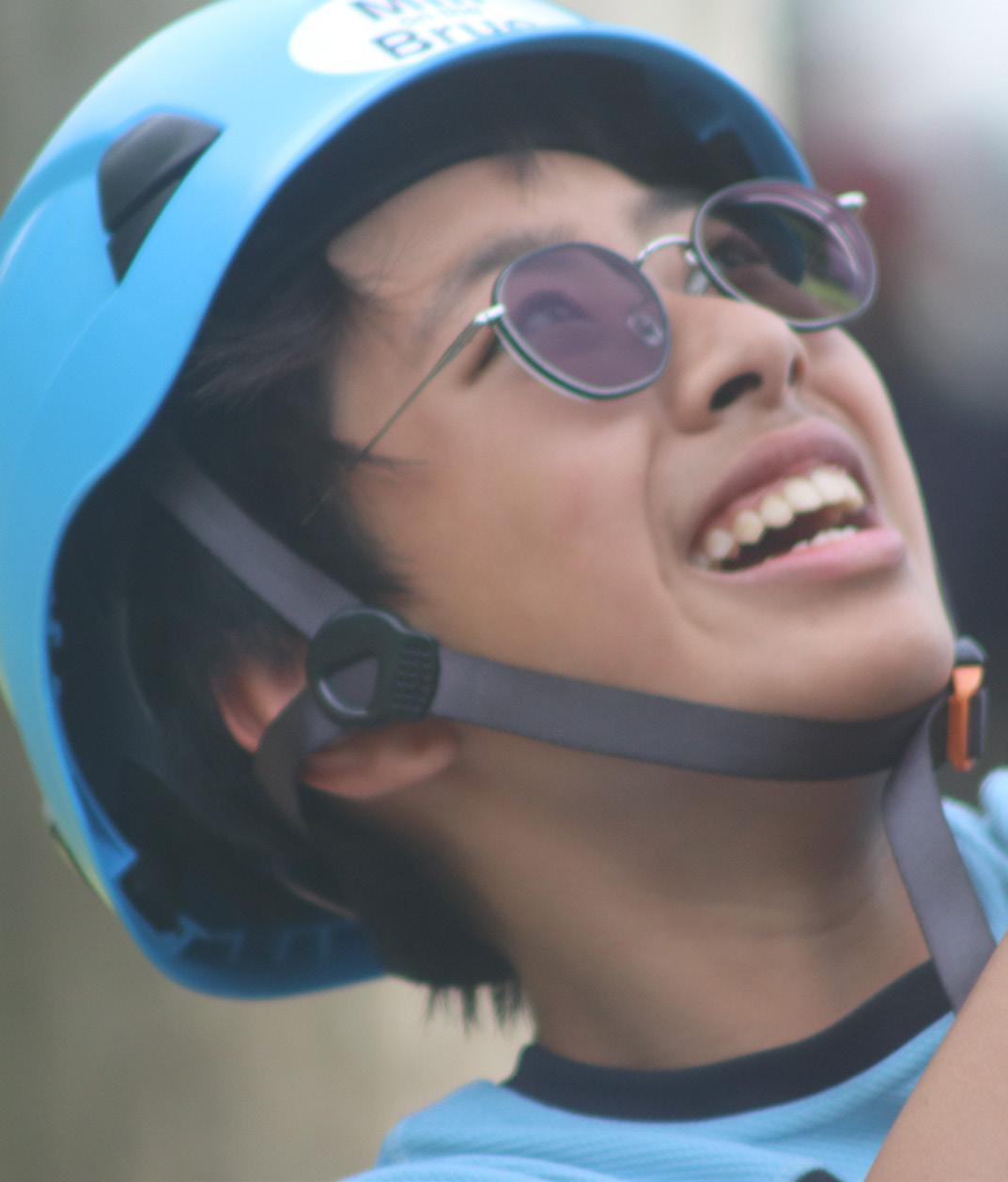
• Work out a routine with your parents (and Tutor) for before school, at school and at home
• Put a copy of your timetable on your desk at home and on the inside door of your locker
• Use your planner to make sure you are in the right place at the right time
• Write out your prep instructions fully (not something like ‘finish sheet’)
• Aim to do your homework on the night it is set
• Know what do if you are delayed in the morning or if your lift is delayed at the end of the day
• Remember that teachers vary; you will have some that you will think are great and others you may need to try hard to work well with
• Put your planner book on the corner of your desk at the start of each lesson
• Pack your games kit and get your uniform ready the evening before you need it
• Never get your parents to do anything regularly that you can do for yourself!
